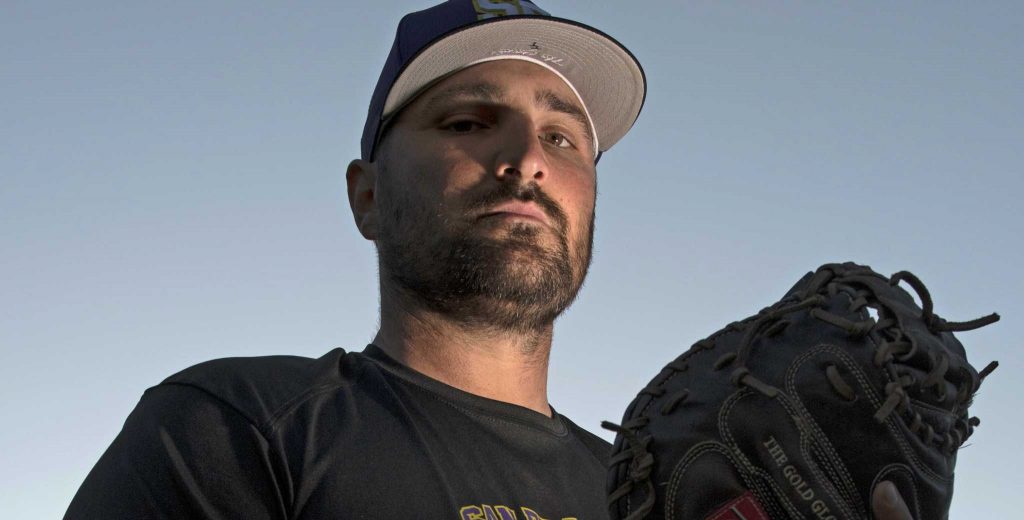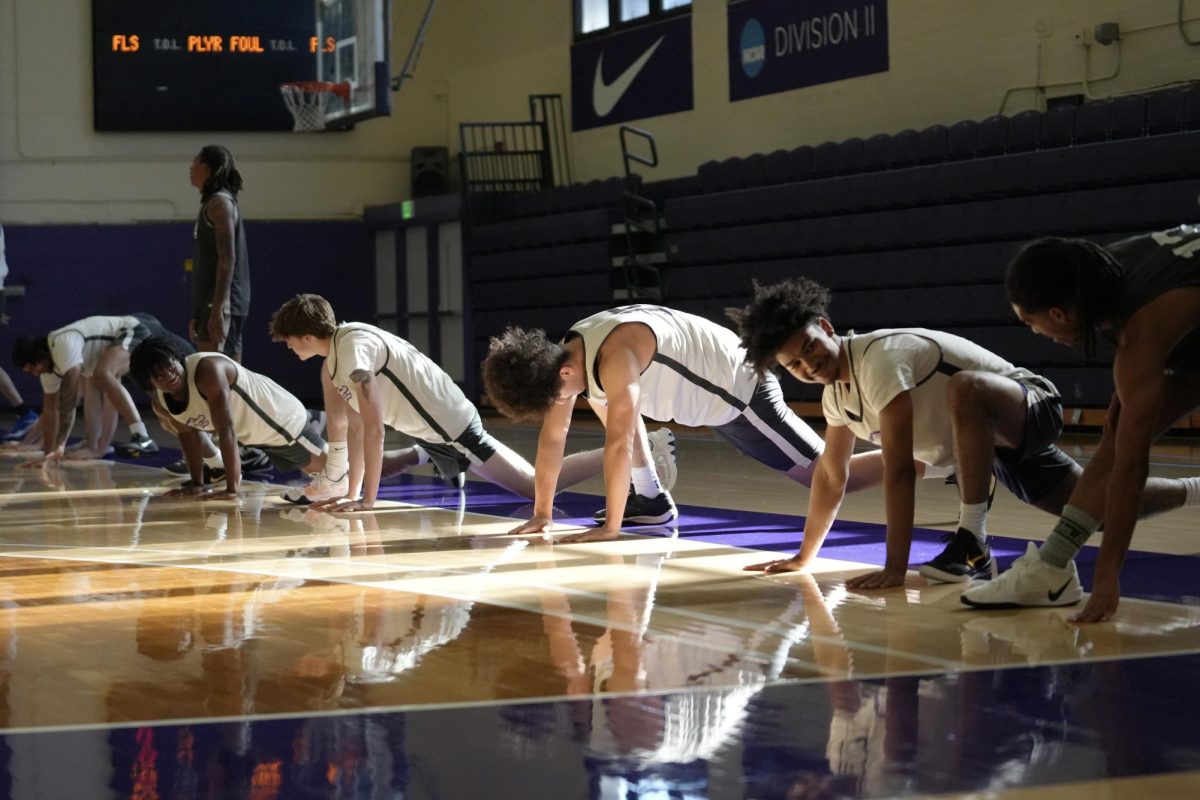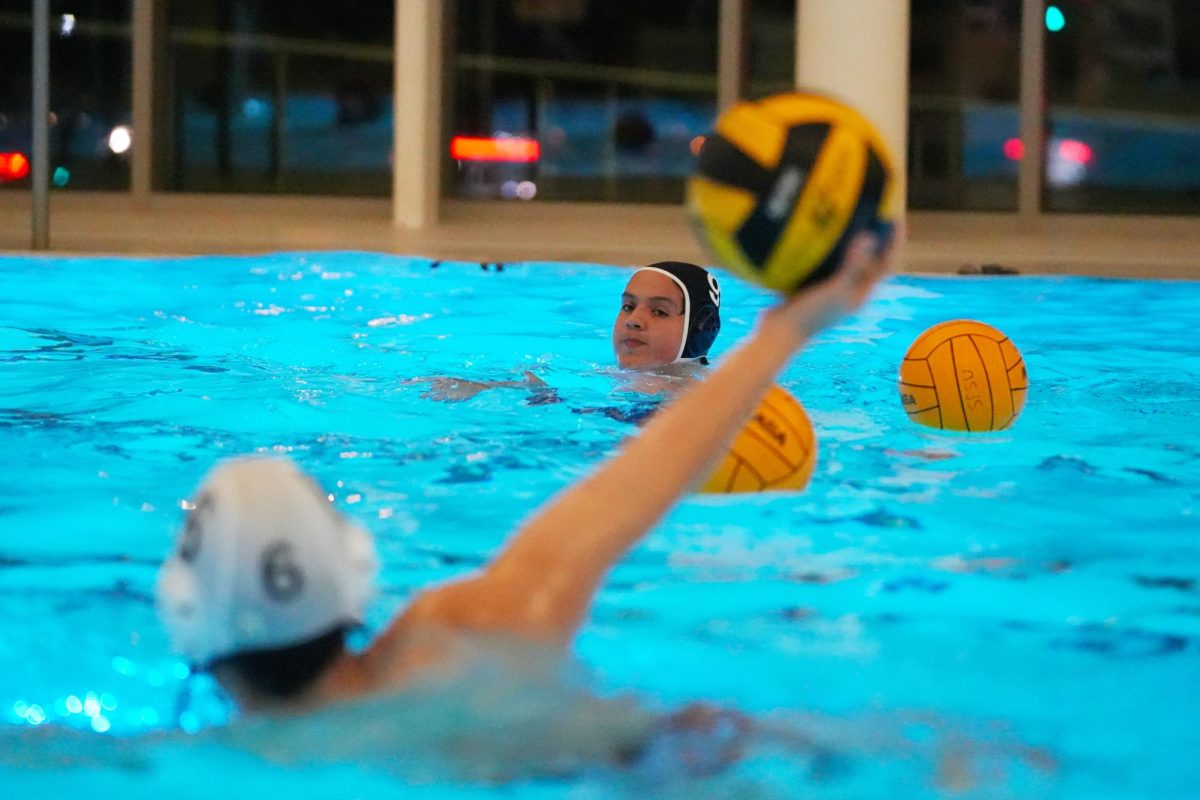As of the beginning of this year’s MLB season, 29 of the league’s 30 teams employ a former professional pitcher as their pitching coach.
The one team to buck this trend, the Milwaukee Brewers, has former Vanderbilt University pitching coach Derek Johnson in charge of its pitchers. Johnson never played professionally, but over his 11-year career at Vanderbilt, he mentored future major league pitchers like David Price of the Red Sox, and the Athletics’ Sonny Gray.
Similar to the Brewers, the SF State baseball team’s coaching staff is outside the norm when it comes to its pitching coach, former catcher Tyler LaTorre.
“I know what the hitter is thinking,” LaTorre said. “So I give a little bit different mindset to my pitchers.”
LaTorre graduated from University of California, Davis, where he had played in 2006, and signed a free agent deal with the San Francisco Giants in the same year. He played in their minor league organization for the following eight years. After playing with the Brewers’ AA team in 2015, he was offered the position of head assistant coach and recruiting coordinator for SF State’s baseball team by current head coach Tony Schifano.
“I just felt like it was the right time for me to get into coaching,” LaTorre said.
One thing LaTorre noticed when he joined the Gators’ coaching staff was the team’s high walk rate in previous seasons. The 2015 team allowed 4.08 walks per nine innings, which has been reduced to 3.15 in 2016, and as of April 3, 3.57 walks in 2017.
“We play at a big field — Maloney field is a big, big field,” LaTorre said. “We pitch to contact now.”
Because of the spacious dimensions of Maloney Field, the Gators’ home field, the pitch-to-contact method has become a hallmark of the pitching staff.
“Most of our starters, now that we’re in the middle of the season, they’re going into the fifth, sixth, seventh and even eighth inning,” LaTorre said. “They’re limiting their pitches, they’re limiting their pitch count, they’re attacking the zone.”
One day later, junior starter Andrew Najeeb-Brush tossed a three-hit shutout against California State University, San Bernardino. Of the 32 batters Najeeb-Brush faced, he struck out just three while inducing 15 flyouts and seven ground outs.
“LaTorre has been a great pitching coach,” Najeeb-Brush said. “Not only does he help with the physical technique of pitching but he’s also helped a lot with the mental aspect of it.”
Despite his title, LaTorre does much more than just work with pitchers. He works with the team’s catcher core on their catching, blocking and receiving techniques as well as their hitting.
“I work with them on knowing what the pitcher’s strengths and weaknesses are, what the team’s strengths and weaknesses are and what the scouting report says about the hitters we’re facing,” LaTorre said.
Senior catcher Dalton Pizzuti appreciates how well the coach knows the game.
“Nine years in pro organizations, you start to learn the game a lot better and there’s a reason why catchers are usually managers,” Pizzuti said.
The catcher said LaTorre has helped him with a lot as a mentor for the past two years, teaching him how to think things through.
“Dalton Pizzuti is a senior that’s been here for four years that has a really good arm,” LaTorre said. “I’ve been working with him to really get confident and being able to know that if that guy runs, he’s out.”
Pizzuti and Najeeb-Brush both agreed LaTorre has used his skill set to help the pitching and catching staffs sync up.
“This entire spring and this journey that we’ve gone through has definitely helped,” Najeeb-Brush said. “Every game we go through, every practice that we have, we’re able to learn each other better and I feel like the chemistry is definitely building.”
Despite the number of former pitchers that have become pitching coaches at the major league level, becoming a pitching coach as a former catcher is not completely unheard of. Dave Duncan, widely regarded as one of the best pitching coaches ever, played 11 major league seasons as catcher for the Athletics, the Cleveland Indians and the Baltimore Orioles.
Duncan became a pitching coach for 29 seasons in his post-playing days, serving on Hall of Fame manager Tony LaRussa’s coaching staffs with the Chicago White Sox, the Athletics and the St. Louis Cardinals. Duncan’s tutelage fostered four Cy Young Award winners, and four different pitching staffs that led the majors in earned run averages.
LaTorre may not have the resume of an all-time great like Duncan, but he still uses the knowledge he’s gained on both sides of the ball.
“I’m a student of the game and I like to think of myself knowing more about the game than anybody else,” LaTorre said. “I listened to pitching coaches like Dave Righetti with the Giants and my pitching coach at UC Davis Matt Vaughn.”
LaTorre noted the baseball team’s goal of being what he called a “pressure team.”
“Whether that’s on offense, putting pressure on the defense with our hitting, or on defense putting pressure on the hitters because they know that we’re going to make the play and with the pitching staff we’re going to force contact,” said LaTorre.
He felt the goal of putting pressure on the other team gives the Gators a bright future.
“We’re quicker to the plate and we’re varying our times to the plate and so it’s just an all-around good time to be a part of the Gator pitching staff and the Gator program.”







